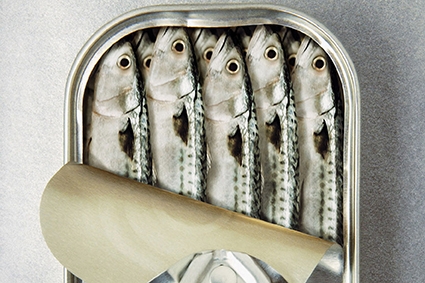From Sardines to His Mother’s Soul: Ogden on Public Transport
OPED
Were I the Prime Minister of Georgia instead of that new chap who nobody’s heard of who looks like he escaped from Madam Tussaud’s, the first thing I would sort out in this country would be public transport. It is, quite frankly, a damned nuisance.
The crowded conditions of marshrutkas and buses are something which even hipster Americans grow tired of after a few months, the experience not made any more tolerable by the speed with which the things are driven. It is, really, a bit like being a canned sardine after the can has been kicked down the stairs.
Due to a series of very poor life decisions, for a period of six months I ended up living close to the airport, which necessitated the use of marshrutkas. It is the kind of experience that I imagine Dante had in mind when he penned his Inferno. With people either pressed up against the windows or with their arses hanging out of them, and there barely being space enough to breathe, it brings to mind the historical descriptions of slave ships (now that I think about it, Georgian marshrutka drivers would make good crews for slave ships, with all their experience of packing people into tight spaces; not the most useful skill to have in this day and age, but you never know what will happen if America has the Republicans back).
With all this in mind, getting out is naturally an interesting experience. Even getting the driver to stop has always seemed to be difficult for me. I’ve no idea why; I practiced the word for ‘stop’ in Georgian until I was blue in the face, and a host of Georgian friends told me it was fine. Now, being an Englishman, I am naturally not inclined towards bawling at the driver in a foreign language from the back of a crowded minibus. It attracts attention, rather, and is simply not British (although really my reluctance is ridiculous, when you think that you’ll have to push past a host of Georgians who refuse to move anyway). With this in mind, I recall one time when I pushed my way to the front of the bus, stood by the door with money in hand, and then looked at the driver and said ‘stop’.
He turns to me. ‘Stop?’ he asked. I’m not a patient man, and this was the giddy limit. ‘No,’ I would have said if my Georgian had been good enough, ‘I want you to bloody accelerate and break the sound barrier. That’s why I’m standing by the door with these coins in my hand, to help this vehicle reach Mach 3.’ Instead I just repeated my demand and he condescended to finally acquiesce to my request, though we had now overshot my destination by almost half a kilometre.
Taxis are marginally better, providing you have a driver who knows where he’s going (drivers unfamiliar with the city are uncommon, but not unheard of) and who doesn’t want to talk. Not that I’m against friendliness (much), it’s just that the conversation is never particularly stimulating. After you’ve answered the questions ‘Where are you from/do you like Georgia/have you tried khinkali?’ once, you’ve answered them a thousand times. I also recall my friend Gvantsa once took a taxi from my home and she later told me the driver had delivered her a lecture on how she should be a good Georgian girl, and then gifted her a picture of a church. Since Gvantsa is an LGBT rights activist who is more tattoo than girl, I’d say he was barking up the wrong tree.
For my recent wedding, a taxi driver also had 50 Lari off my brother for a journey that should have cost a tenth of the price. Smelling foreigners, they feel free to take advantage (which contradicts the much-vaunted Georgian hospitality, I’d say), which is understandable if not excusable. However, I had a bizarre experience in Batumi last month when my wife and two friends took a taxi from the train station to the hotel.
The price the driver demanded was ten Lari. My wife and one of my friends, being Georgians, told him this was unacceptable. Not so, says driver; on the soul of his mother, it is a fair price. Very well, says wife, we’ll find someone else who’ll take us for cheaper. (Sensation). Driver surrenders. Fine, says he, eight Lari. Alright, we say, eight Lari; the other drivers aren’t likely to take us for any cheaper anyway.
We clamber aboard. Driver then hears my English friend speaking our own language. Oho, thinks he, what’s this? Not Georgian, surely? Nor Russian; he’d recognise it from the TV. Could they possibly be Westerners?
He turns to my Georgian friend. Ten Lari was a fair price, says he. It is pointed out that the price has already been set for eight. I know, I know, driver says, but on the soul of his mother, it was fair.
Conversation between my wife and I then turns to reminiscing over our last time in Batumi. Driver thinks that the subject of cost has not been discussed enough. “Ten Lari,” he says. On the soul of his mother.
At this point, my temper begins to fray, and I remark to my wife that I’ll give him thirty if he’ll bloody well shut up. (Laughter). Driver stirs. “Was he swearing at me?” driver asks. (I was, but telling him that would not have helped). We reassured him. Peace is restored. Eight Lari is paid to disgruntled driver.
On the return trip, oddly enough, we paid only four Lari to an honest man.
I would write more on this, but I’m already over my word count. But if I was Prime Minister, I swear that marshrutkas would be reformed and taxi prices and conduct regulated. I promise. On the soul of my mother.
Tim Ogden












